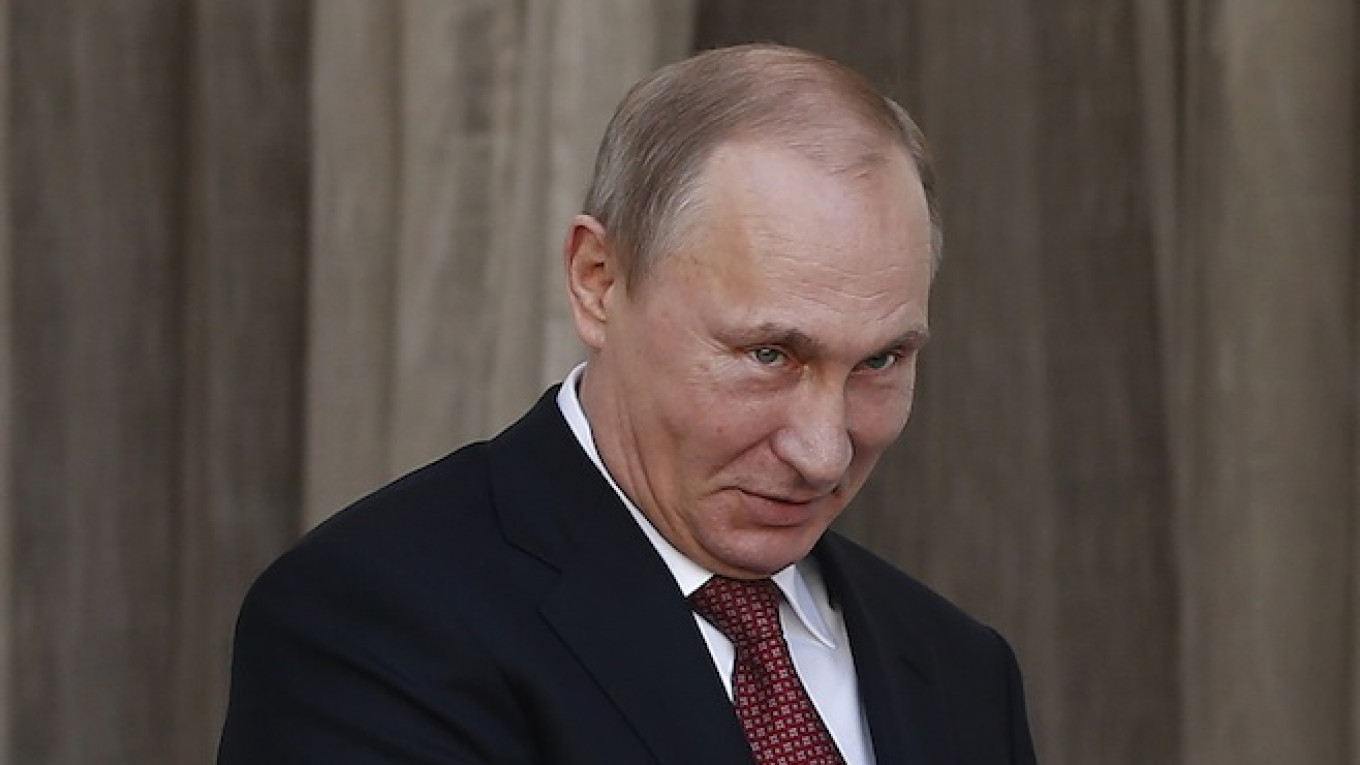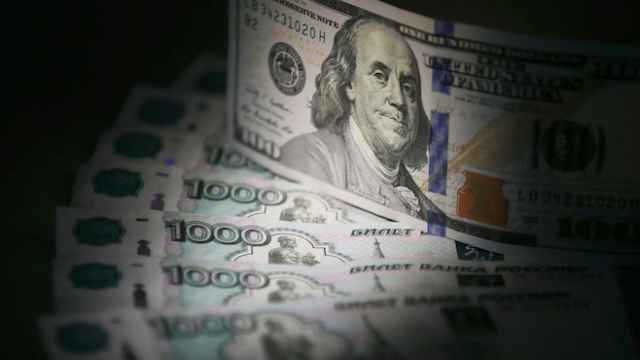Late on Monday night Russia's Central Bank governor wrung out an agreement with her officials to impose the country's biggest rate hike since the financial crisis of 1998 — with the approval of President Vladimir Putin.
Elvira Nabiullina had to halt the collapse of the ruble — down 56 percent against the dollar so far this year — not only to avoid the chaos of another economic implosion but to remove a growing threat to Putin. His ratings are at an all-time high following the annexation of Ukraine's Crimea, but depend too on his promises of financial stability.
A source close to the Kremlin could not say whether Putin had ordered the rate hike, or if he simply approved it.
"I cannot tell you who called whom. But this was not some minor policy tuning, this was a huge rate hike, of course the president was involved," said the source.
The Kremlin was quoted as saying by RIA news agency on Tuesday that it would not comment on the decision as the bank was independent of it.
Initially some board members suggested increasing the main rate by 4 to 5 percent, sources familiar with the situation said, to try to shore up an economy pushed to the brink of recession by plummeting oil prices and Western sanctions resulting from Putin's action on Ukraine.
But by 10 p.m. Moscow time, all had agreed to an unprecedented 6.5 percent hike, the biggest since 1998 — when an economic collapse prompted the ruble to crash and caused millions of Russians to lose their savings as the country defaulted.
"The meeting was long, the meeting was difficult and the decision was very difficult," said one of the sources close to the matter.
Oleg Vyugin, chairman of the board of MDM Bank and a former first deputy central bank chairman, said the Kremlin may not have issued direct instructions.
"This [the Kremlin's influence] does not necessarily have to be in the form of consultations," he said.
"It could be a tacit understanding — as a carte blanche: You make decisions and you are responsible for them."
Delay
The meeting ended soon after 10 p.m. At around 11:30 p.m., a correspondent saw Nabiullina's black Audi — with its blue flashing light of Russia's political elite — drive back through the gates of the Central Bank.
It is not clear why she returned, but sources familiar with Central Bank procedures say her signature was most probably needed on the final document.
After the decision, it took the bank almost three hours to send text messages to a group of journalists who cover monetary policy. Those messages arrived at 12:47 a.m. Moscow time, alerting them that a press release would appear on the bank's website.
"The decision was ready, but there were technical glitches," said the source familiar with the Central Bank.
By 12:51 a.m. on Tuesday, an hour and six minutes after the ruble stopped trading on the MICEX Index, the bank's announcement was published.
At Tuesday's opening, the ruble opened up 9 percent. It soon fell back to record lows and was trading down 20 percent at its weakest point on Tuesday, eventually recovering to losses of only 7 percent by 8 p.m.
Speaking to Russian state-owned Rossia-24 television channel after the currency markets had opened, a pale Nabiullina defended her decision, saying it was aimed at curbing the negative effect of the ruble weakness.
Investors and analysts had praised the Central Bank for its action to support the ruble when it fell on news that Russia would intervene militarily in Ukraine. Back in March the bank spent as much as $10 billion a day to defend the currency, though since then it has intervened only sporadically.
But on Tuesday, Russian lawmakers called for Nabuillina's resignation, dubbing her a "pest." Her first deputy in charge of monetary policy, Ksenia Yudayeva, was also criticized.
"I am not sure whether Nabiullina can survive this," said Timothy Ash, head of emerging-markets research at Standard Bank in London. "She has now had the worst of all worlds, allowing the ruble to crash, having lost close to $100 billion in forex reserves and having hiked policy rates by more than 1,000 basis points now this year."
"I am asking myself who has been running monetary and exchange rate policy in Russia in recent weeks. Was it the Central Bank or the Kremlin?"
A Message from The Moscow Times:
Dear readers,
We are facing unprecedented challenges. Russia's Prosecutor General's Office has designated The Moscow Times as an "undesirable" organization, criminalizing our work and putting our staff at risk of prosecution. This follows our earlier unjust labeling as a "foreign agent."
These actions are direct attempts to silence independent journalism in Russia. The authorities claim our work "discredits the decisions of the Russian leadership." We see things differently: we strive to provide accurate, unbiased reporting on Russia.
We, the journalists of The Moscow Times, refuse to be silenced. But to continue our work, we need your help.
Your support, no matter how small, makes a world of difference. If you can, please support us monthly starting from just $2. It's quick to set up, and every contribution makes a significant impact.
By supporting The Moscow Times, you're defending open, independent journalism in the face of repression. Thank you for standing with us.
Remind me later.






